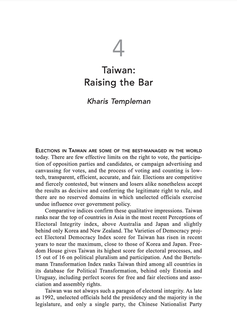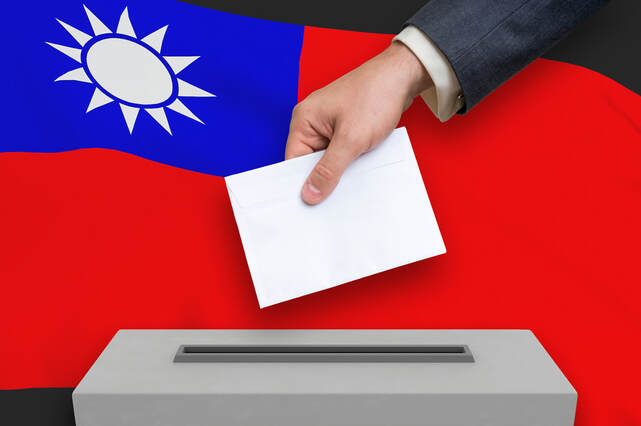I'm also in Taiwan for this cycle and will be posting regularly on Bluesky -- I have left behind the decrepit remains of Twitter for good, I hope -- and can be found at: @kharist.bsky.social. Bluesky finally opened posts to public viewing without requiring a Bluesky account, so I'm going to direct interested readers there for quick reactions on the campaign and breaking news. Also, for any Taiwan tweeps interested in making a similar migration, I have a few Bluesky access codes available -- hit me up on email and I'm happy to share.
I'll also highlight a couple of resources here on Taiwan elections.
- The Central Election Commission has a decent English-language version of their website, and will report results in real time here on January 13.
- MyFormosa (美麗島電子報) is the polling company with the best combination of a long track record of good survey work, frequent polls, and a detailed breakdown of their methodology. They may have a slightly green house effect but it's far less problematic than many of the other polling companies in this space.
- TaiwanPlus is covering the campaign in depth and will have three hours of live English-language coverage on election day.
- The Central News Agency's English-language site is Focus Taiwan, which also offers quality non-partisan news coverage.
- The Taipei Times is the English paper of record for Taiwan. It's a sister paper of the green (i.e. DPP friendly) Liberty Times newspaper.
- Presidential and Vice Presidential Election and Recall Act (for the presidential election)
- Public Officials Election and Recall Act (for the Legislative Yuan elections)
- The Organic Law of the Central Election Commission
- Political Parties Act (passed in 2017, tightens requirements to start a political party and maintain one in good standing)
- Political Donations Act (passed in 2018, limits amounts and times for donations to candidates)
- Anti-Infiltration Act (passed in 2019, aimed at combatting PRC influence in Taiwan elections)

Finally, for those readers interested in a deeper look at Taiwan's electoral management practices, I have a recent book chapter laying out the rules from beginning to end of the electoral process. It covers questions like "Does Taiwan allow absentee voting?" (No) and "Can candidates withdraw from the presidential race now?" (also no).
This chapter is drawn from Electoral Malpractice in Asia: Bending the Rules, co-edited with Netina Tan and available from Lynne Rienner Publishing. It covers election regulations, rules, and their problems in 11 countries in the region: Japan, South Korea, Taiwan, Mongolia, the Philippines, Cambodia, Indonesia, Singapore, Malaysia, Thailand, and Myanmar/Burma.
The big takeaway from that comparative study is that Taiwan is now top of the pack in Asia for professional non-partisan electoral management, and the kinds of shenanigans that bedevil elections in much of the rest of the region have mostly been eliminated in Taiwan. Expect this year to be no different -- Taiwan's election day system of voting and counting is exceptionally fast, efficient, low-tech, and transparent, and much of the rest of the democratic world could learn a thing or two from how Taiwan conducts elections.


 RSS Feed
RSS Feed
